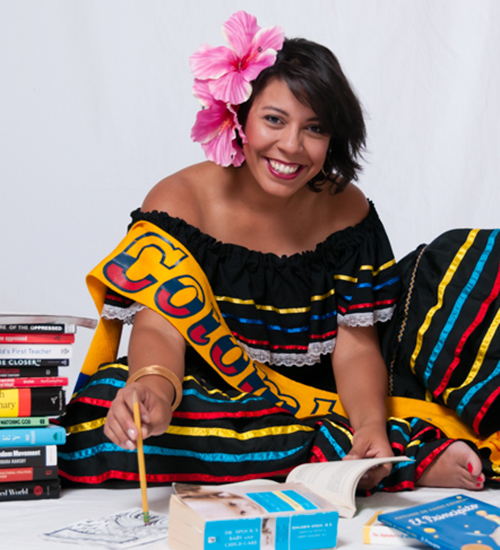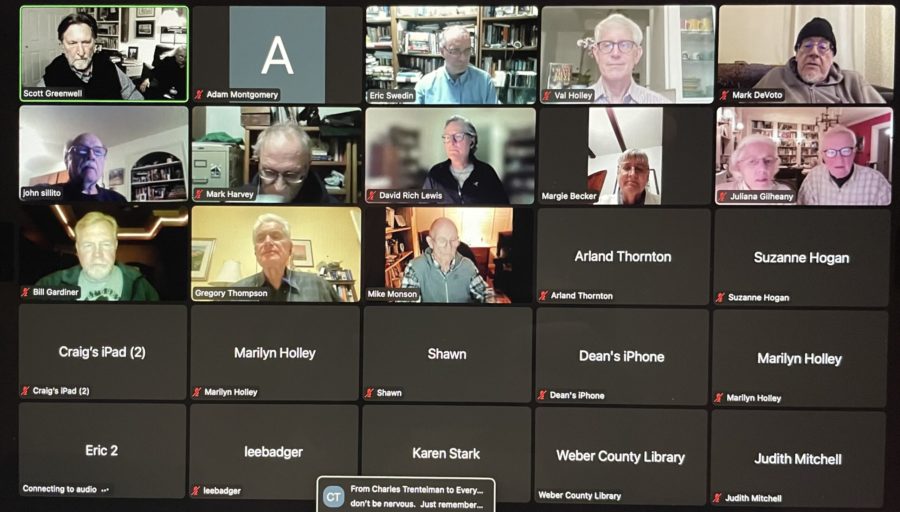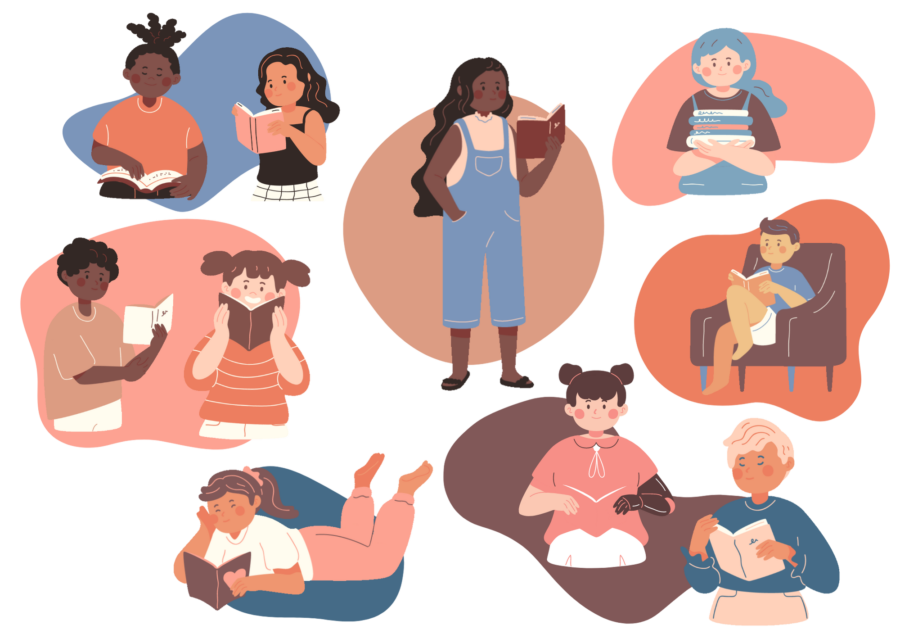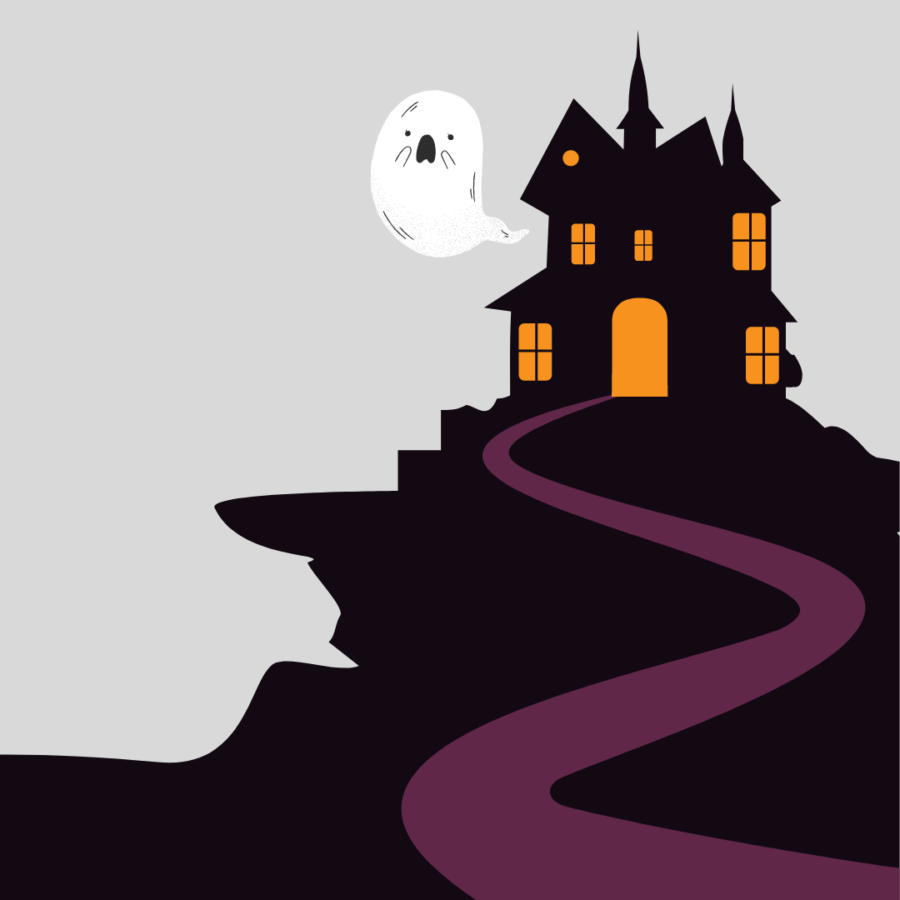Those of you who aren’t creative writing majors, I know how you see us. I know. It’s OK.
I know when you think “creative writing major,” you think of people who make the characters of “The Big Bang Theory” look like social rock stars. You know who I mean.
The frizzy-haired girl in the corner who wants to show you sketches of her characters, like Persephone the Necromancer and Xander, the enigmatic demon she loves, and interprets your politely feigned interest as an invitation to describe her whole series to you in agonizing detail.
The guy who takes 15 minutes at the open mic, five of them spent on explaining the meaning and inspiration of his poem and the next 10 reading it with such smarmy relish you daydream about running up there and punching him in the face to widespread applause.
The people in the coffee shop who tap away at their laptops with increasing volume until someone asks them what they’re working on and lives to regret it.
People who love talking about being writers every bit as much as they love reading excerpts of their novel to the class, full of just precious dialogue like, “My, you mortals are foolish. Surely you know the intelligence of dragons is far superior to that of your own. My great-grandfather, Rubyfang, dictated every word later credited to the imbecile you call — what was it, again? Ah yes — Shakespeare.”
All the people who make other creative writing majors break down in existential crises after taking a moment to seriously rethink their lives.
It’s OK, because those are the people I think of when I think about NaNoWriMo participants.
Now, I have to be really careful how I go about this, because I’m about to insult my own kind with this one, and I swear, most of my writer friends are only like those stereotypes 85 percent of the time. I’m not saying I don’t get the appeal of NaNoWriMo. I’m just trying to figure out the point.
For those of you who don’t have any classes in Elizabeth Hall or otherwise associate with creative writing majors, NaNoWriMo stands for National Novel Writing Month. Each November, www.nanowrimo.org hosts a free writing contest for aspiring novelists. The goal is to write 50,000 words, which can be the whole novel or the start of a novel, by the end of November. If you do this, you win. How many winners are there? However many people achieve this. What do you win? An e-certificate saying you wrote 50,000 words that no one read and entered them into NaNoWriMo’s word-count engine rather than Microsoft Word’s. It’s the opportunity of a lifetime, friends.
Before you accuse me of sneering at a nonprofit website designed to encourage and motivate amateur writers, I’ll say this for NaNoWriMo: Actually getting words down on paper is indeed half the battle. NaNoWriMo is upfront about the fact that it celebrates quantity over quality and is likely to produce some pretty shabby work. It doesn’t care if you write a “To Kill a Mockingbird” on its watch or a “50 Shades of Grey.” I just think that people who have a genuine problem with motivation and have been stuck on Chapter 3 of their pet project since 2009 are not suddenly going to be spurred to new heights of productivity by the prospect of an e-certificate basically saying they wrote 50,000 words of what could easily be the worst prose since “My Immortal.”
After some research, I think NaNoWriMo seems accidentally geared not toward the people it’s trying to help, but the people who really don’t need any more encouragement than their self-satisfaction at being “a writer” and love any excuse to tell people about Persephone and Rubyfang under the guise of seeking feedback. I do know some hardworking, talented student writers who participate in it, and if the sense of community with their fellow amateur writers genuinely motivates and inspires them, I really do think that’s fantastic. It’s just that the whole NaNoWriMo concept, a big part of which is write-in parties and forum chat, reeks a bit of a venue for aspiring writers to get together and congratulate themselves on being aspiring writers, perhaps pawning off their six-part paranormal romance series on as many unsuspecting victims as they can along the way.
I respect, though, that the chief appeal of NaNoWriMo is that social aspect of it. I myself considered participating in it this year for that reason: transforming the lonely pursuit of writing into an almost communal activity.
But the point of doing it would be to finish that thing I’ve been on since 2009, and NaNoWriMo says you have to start from scratch on Nov. 1. And if I break the rules, I might not get the certificate! Think of the doors that certificate would open up to me.


















